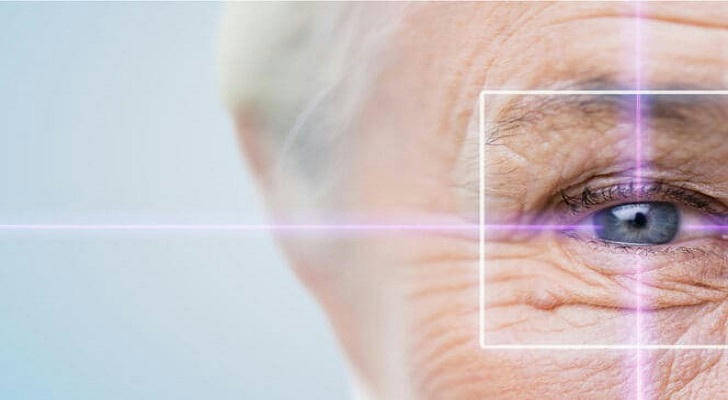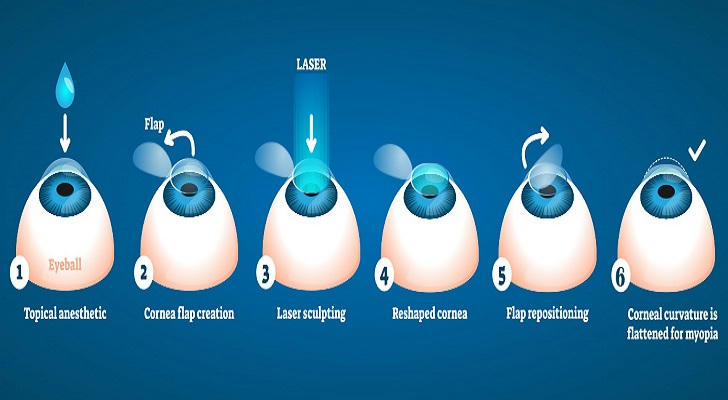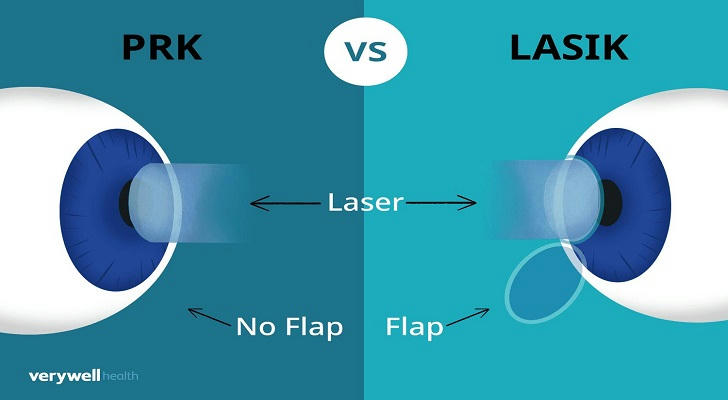Vision Savior for the Elderly: Comprehensive Analysis on Laser Eye Surgery!

As we age, laser eye surgery becomes more common due to various factors such as presbyopia, cataracts, and other age-related conditions, offering a potential solution for older adults who want to enhance their vision and reduce their reliance on corrective lenses. This comprehensive guide explores the considerations, benefits, and types of laser eye surgery relevant to older adults.
Vision Changes in Older Adults
Older people often experience vision changes as part of the natural aging process. Presbyopia, a condition in which the eye cannot focus on close objects, usually becomes noticeable after age 40. Cataracts are characterized by clouding of the eye’s natural lens, resulting in blurred vision and sensitivity to light. These age-related changes can significantly impact daily activities and quality of life.
Benefits of Laser Eye Surgery for Seniors
- Reduced Dependency on Glasses: Many seniors find freedom from wearing glasses for distance vision or reading after laser eye surgery, depending on the procedure chosen.
- Improved Quality of Life: Clearer vision can enhance overall quality of life by enabling seniors to engage more comfortably in activities such as reading, hobbies, and social interactions.
- Safety and Efficacy: Advances in technology have made laser eye surgery safer and more effective, with high success rates in correcting refractive errors.
- Treatment of Cataracts: In addition to traditional refractive surgeries like LASIK and PRK, laser techniques such as Femtosecond Laser-Assisted Cataract Surgery (FLACS) can address cataracts and correct refractive errors simultaneously, offering comprehensive vision improvement.
Types of Laser Eye Surgery for Seniors
- LASIK (Laser-Assisted In Situ Keratomileusis) LASIK involves creating a thin flap on the cornea, reshaping the underlying tissue with an excimer laser, and replacing the flap, resulting in rapid visual recovery and minimal discomfort. This procedure remains a popular choice for seniors who qualify based on their eye health and refractive stability.

- PRK (Photorefractive Keratectomy) PRK may be recommended for seniors with thinner corneas or those who may not be suitable candidates for LASIK due to corneal health considerations. It involves removing the outer layer of the cornea (epithelium) before reshaping the corneal tissue with an excimer laser, promoting healing over several days to weeks.

SMILE (Small Incision Lenticule Extraction) SMILE is a newer minimally invasive procedure that involves creating a small incision in the cornea to extract a lenticule of tissue using a femtosecond laser. This flapless technique may reduce certain risks associated with flap-based procedures while offering quick recovery and effective vision correction.
FLACS (Femtosecond Laser-Assisted Cataract Surgery) FLACS combines the precision of femtosecond laser technology with cataract surgery, allowing for customized treatment of both cataracts and refractive errors. This advanced approach enhances surgical accuracy and visual outcomes, particularly beneficial for seniors with significant cataract development.
Common Cases of Laser Eye Surgery for the Elderly
- Cataract Surgery: Cataract is a common eye disease in the elderly that can be treated with laser surgery. A man in his 70s had cataracts that seriously affected his vision and underwent laser surgery. After the surgery, his vision improved significantly and his quality of life improved.
- Myopia Surgery: An 80-year-old man had laser surgery because his myopia was too high and he could not correct his vision by wearing glasses or contact lenses. After the surgery, his vision improved significantly and he could participate in various activities more freely.
- Glaucoma Surgery: Glaucoma is a common eye disease in the elderly that can cause increased intraocular pressure and damage the optic nerve. A man in his 90s had glaucoma that seriously affected his vision and underwent laser surgery. After the surgery, his intraocular pressure was effectively controlled and his vision was restored to a certain extent.
Considerations for Older Adults Considering Laser Eye Surgery
- Health and Stability: Senior adults should have stable vision for at least one to two years to ensure predictable outcomes. A comprehensive eye examination will assess overall eye health and suitability for surgery.
- Management of Other Eye Conditions: Seniors with conditions such as dry eye syndrome or glaucoma may require additional management before surgery to optimize outcomes and minimize risks.
- Realistic Expectations: While laser eye surgery can greatly improve vision, seniors should understand that perfect vision may not always be achieved, and some may still require glasses for certain tasks.
- Post-Operative Care: Following surgery, seniors will need to adhere to prescribed medications and attend follow-up appointments to monitor healing progress and ensure optimal visual outcomes.
Conclusion
Laser eye surgery offers seniors the opportunity to improve vision and reduce reliance on corrective lenses. As technology advances, procedures such as LASIK, PRK, SMILE, and FLACS offer safe and effective options for addressing refractive error and cataracts. Consulting with an experienced eye doctor is essential for determining the most appropriate procedure based on individual eye health and lifestyle needs.
